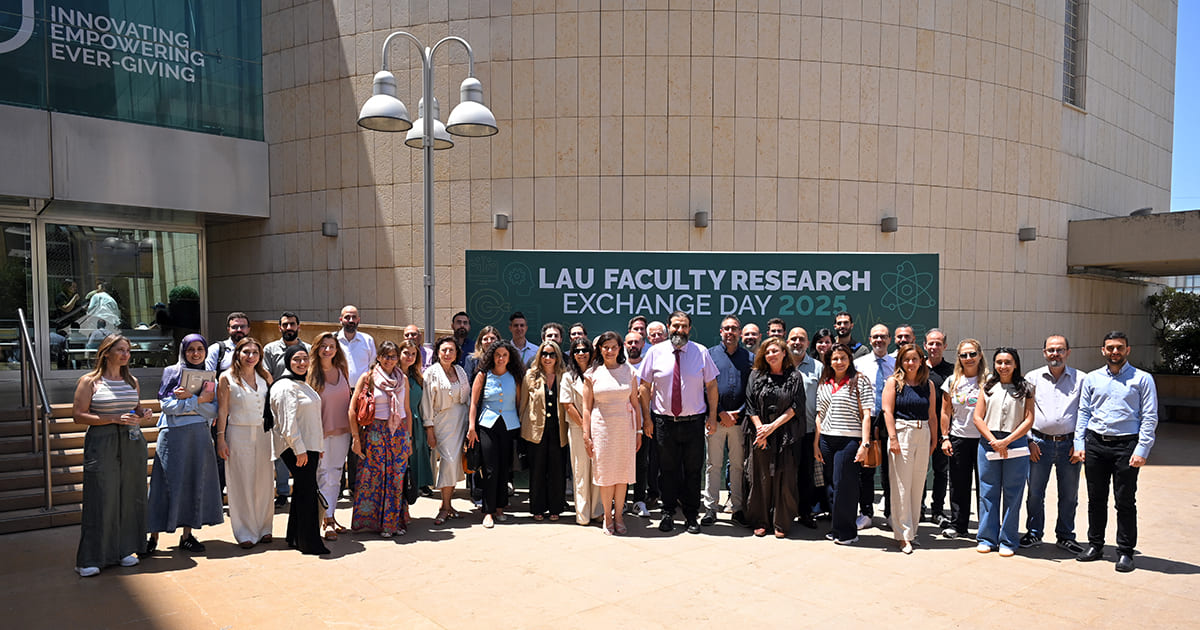Fostering a Culture of Research Collaboration and Impact
A faculty research exchange day, hosted by the Office of Graduate Studies and Research, encourages academicians to break down the walls of their traditional fields.
Research, by definition, seeks to discover new knowledge and establish facts. In recent years, this endeavor has seen a rise in collaboration between different fields, where faculty and academicians have identified common grounds that could make their findings more relevant and holistic.
At LAU, a dedicated Faculty Research Exchange Day, hosted by the Office of Graduate Studies and Research (GSR) on July 9, 2025, was set up specifically for this purpose: To encourage LAU faculty to embrace interdisciplinary research and break the silos of their traditional fields of study.
Setting the tone for the day while welcoming attendees, GSR Dean Samer Saab explained how the university’s vision for research “has moved on from counting the number of Q1 publications to supporting and rewarding research that has a tangible and positive impact on Lebanon and the wider region.”
This evolving vision is not only specific to LAU, added Dr. Saab. The transformation in the publishing landscape is evident worldwide, as a growing number of prestigious journals are redirecting their focus to research that bridges traditional disciplines.
Aligning with this shift, the university is actively looking to fund intramural research that involves innovative, interdisciplinary projects and ideas, especially those that look to solve real-world problems. On this score, Dr. Saab also introduced the faculty to several European and pan-Mediterranean research-funding programs able to support their collaborative projects.
To familiarize the faculty with current and ongoing research at the university, the full-day event featured common lectures as well as parallel sessions.
Faculty from the Gilbert and Rose-Marie Chagoury School of Medicine, the School of Pharmacy and the Department of Biological Sciences at the School of Arts and Sciences (SoAS) took part in the Health, Medicine and Life Sciences session, while engineering faculty joined their peers from the Physical Sciences Department at SoAS for the Engineering, Technology and Physical Sciences session.
The Social Sciences and Political and Public Affairs session, on the other hand, brought together insightful presentations from political and international studies faculty, together with psychology and education faculty, and marketing professors from the Adnan Kassar School of Business.
“We know that finding a research collaborator from a different department is not always easy,” said Dr. Saab. “That is exactly what today was about: To facilitate those connections and spark those initial conversations.”
